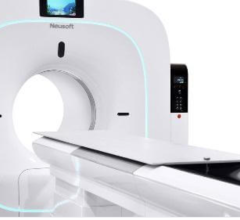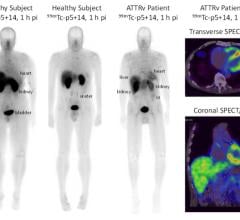January 17, 2017 — NorthStar Medical Technologies LLC has received additional matching funds from the U.S. Department of Energy’s National Nuclear Security Administration (DOE/NNSA) for its accelerator method of producing the medical radioisotope molybdenum-99 (Mo-99). The addition brings the total funding for the new method, in development by subisidiary NorthStar Medical Radioisotopes, to $11.1 million.
The award supports the process’ continued advancement toward commercialization and recognizes NorthStar’s progress toward its goal of offering multiple sources of Mo-99 produced in the United States using complementary processes that do not involve highly enriched uranium (HEU).
The award advances a $50 million cooperative agreement between the two organizations in which NorthStar raised $25 million that will be matched dollar-for-dollar by DOE/NNSA upon full funding of the agreement. NNSA had already fully funded a separate $50 million cooperative agreement supporting NorthStar’s neutron activation Mo-99 production method, which also does not use HEU as the target material.
Mo-99 is the parent isotope of technetium-99m (Tc-99m), the most widely used radioisotope in medical diagnostic imaging. Tc-99m is used in approximately 40 million procedures worldwide each year to diagnose and stage cancer, heart disease, infection, inflammation and other conditions. But while the United States accounts for roughly half of that demand, no Mo-99 has been produced domestically since 1989. All Mo-99 is currently produced overseas, much of it in aging reactors using weapons-usable HEU, creating safety and national security concerns and the risk of product shortages.
Both of NorthStar’s production methods use safe, non-radioactive target material and an external radiation source to convert a naturally occurring isotope of molybdenum into Mo-99 suitable for use in NorthStar’s proprietary RadioGenix isotope separation system. There, it decays to create Tc-99m. Both processes produce a low-volume, benign waste stream, making them “greener” than all other processes that use uranium-based targets.
Accelerator production is currently the most environmentally friendly method of Mo-99 generation; an electron beam from a linear accelerator (LINAC), rather than a fission reactor, is used as a radiation source to drive a reaction that converts molybdenum-100 to Mo-99. The neutron capture method uses neutrons from a fission reactor to convert molybdenum-98 to Mo-99.
In pairing the two production methods, NorthStar will ensure a steady supply of Mo-99 by mitigating the disruptions commonly experienced by single-method producers when faced with unexpected equipment downtime.
Read the 2017 article "FDA Clears Path for First Domestic Supply of Tc-99m Isotope."
For more information: www.northstarnm.com


 July 30, 2024
July 30, 2024 








